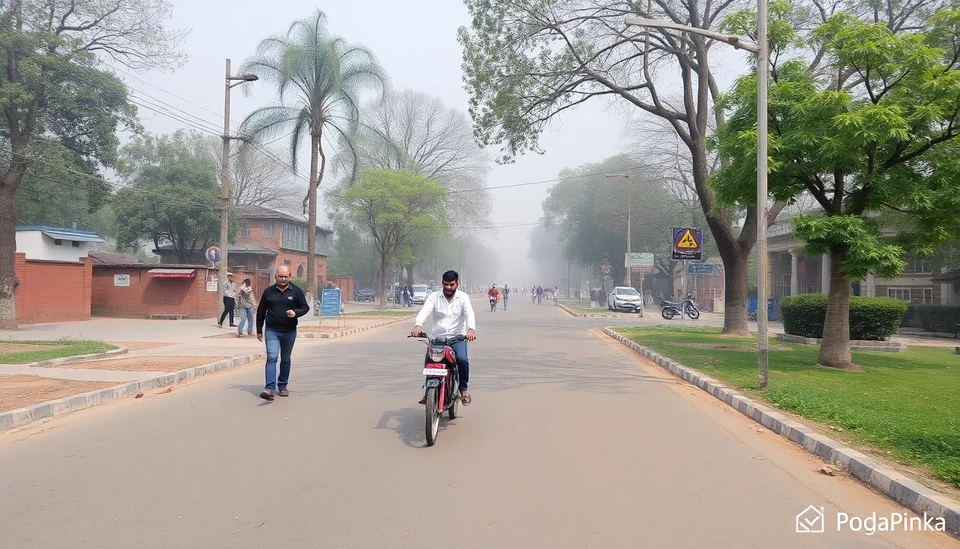
In a significant move to address the alarming levels of air pollution, the Punjab government in Pakistan has launched a comprehensive initiative aimed at tackling one of the most severe smog crises in the world. This new plan comes as the region grapples with persistent smoke and haze that have become a dire health threat for its residents.
The provincial administration has outlined a series of aggressive measures to combat the rising smog levels, which have been exacerbated by a combination of agricultural practices, industrial emissions, and urban pollution. Notably, the government is focusing on managing crop residue burning, a common practice among farmers during the harvest season. This practice has been identified as a primary contributor to the hazardous air quality experienced in the region.
To mitigate this issue, authorities are launching a campaign to educate farmers about alternative methods for managing crop waste. The initiative will promote the use of technology and machinery that allows for the disposal of agricultural residues without the need for burning. In addition, incentives will be provided to farmers who adopt these environmentally friendly practices, potentially including subsidies and financial assistance for purchasing necessary equipment.
Furthermore, the Punjab government plans to enhance its monitoring and enforcement mechanisms. This includes a stricter crackdown on illegal industrial emissions and the implementation of regulations to limit air pollution from vehicles. The government will also collaborate with environmental experts and organizations to develop a long-term strategy to improve air quality in the province.
Health officials have expressed particular concern over the impact of smog on public health, with rising cases of respiratory conditions and other ailments linked to poor air quality. The provincial government is emphasizing the need for urgent action, warning that failure to tackle the smog crisis could have dire implications for the health and well-being of its citizens.
The local communities are also being engaged in this initiative, with plans to raise awareness about the health risks associated with air pollution. The government aims to empower citizens to take action and report sources of pollution within their neighborhoods, fostering a more collaborative approach to addressing this pressing issue.
This initiative marks a proactive step toward not only improving air quality in Punjab but also safeguarding the health of its residents. By addressing the root causes of smog through education, enforcement, and community involvement, the Punjab government is setting a precedent for environmental management and public health response in the region.
As Punjab embarks on this critical journey to tackle smog, it joins a growing movement among cities around the world facing similar challenges. The effectiveness of these measures will be closely monitored as the government seeks to restore clean air and ensure a healthier future for its population.
In conclusion, the launch of this plan by the Punjab government is an essential step towards mitigating one of the region’s most severe public health threats. With comprehensive strategies in place and a commitment to collaborative action, there is hope for significant improvement in air quality and public health outcomes in the months and years to come.
#PunjabSmog #AirQuality #PollutionControl #PublicHealth #EnvironmentalInitiative #SustainableFarming #CleanAir
Author: Megan Clarke




